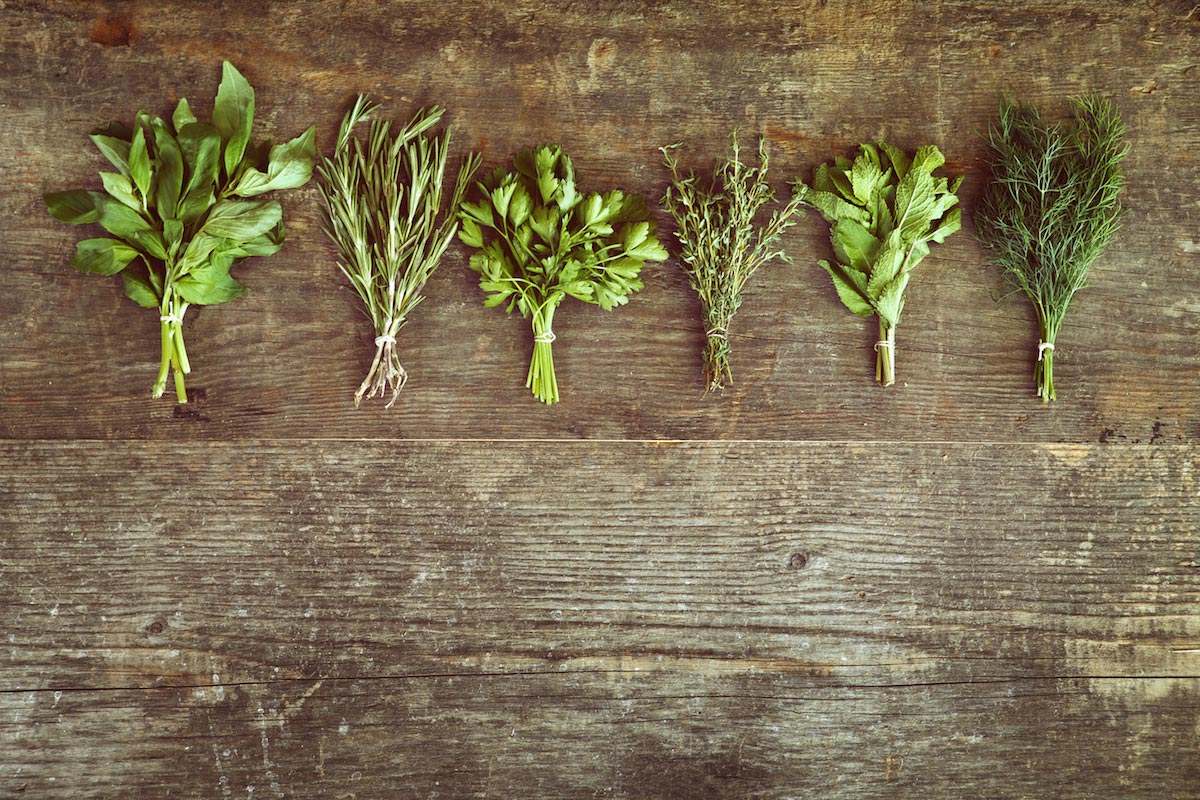20 Herbal preparations for your herbal medicine cabinet
11/12/2021 / By Divina Ramirez

There’s more to herbal medicine than just growing or foraging for medicinal herbs. It also involves knowing how to prepare herbal formulas to maximize the medicinal properties of your chosen plants.
Most people are familiar with herbal teas, but there are many other ways to use herbs medicinally. Certain herbs, for instance, are best used topically instead of orally. There are also herbs that are best made into a tincture and others that need to be infused into a carrier oil before they can be used medicinally.
Listed below are different herbal preparations you can make: (h/t to PracticalSelfReliance.com)
- Herbal tea – Tea is the simplest herbal preparation. Just add your chosen herbs to a cup of hot water, steep for a few minutes and strain before drinking.
- Herbal capsules – Herbal capsules are a convenient way to take herbs. They are ideal if you don’t want to taste the herbs themselves. You can make your own herbal capsules by filling gelatin capsules with powdered herbs.
- Infusion – An infusion is a water-based herbal preparation similar to tea. It can be prepared with either hot or cold water. But unlike teas, an infusion is made by steeping herbs for hours.
- Decoction – A decoction is made by reducing an herbal tea by as much as half of its original volume. But unlike teas and infusions, a decoction is often made with the roots, seeds, bark or fruits of a medicinal herb – not just its leaves.
- Herbal broth – Herbal broths are often made with medicinal mushrooms. Some versions involve incorporating medicinal herbs into slow-cooked bone broths.
- Herbal steams – Herbal steams are especially useful for easing symptoms of respiratory issues. Boiling water is poured over aromatic medicinal herbs, and the resulting steam is gently inhaled.
- Poultice – A poultice is made from fresh or dried herbs that have been finely chopped or pulverized and used topically. Poultices are especially useful for bug bites, stings, burns and rashes.
- Tincture – A tincture is a highly concentrated herbal extract made by soaking in alcohol the bark, berries, roots or leaves of one or more medicinal herbs. (Related: Tincture basics: Recipe for making home remedies.)
- Herbal glycerite – Herbal glycerite is a lot like a tincture except it uses vegetable glycerin, not alcohol. Herbal glycerite is ideal for those avoiding alcohol.
- Herbal sprays – Herbal sprays are alcohol-based extracts that are more convenient than tinctures. The alcohol works as a topical disinfectant but it also helps preserve the herbs used.
- Infused oil – An infused oil is made by infusing dried herbs into a mild oil, such as jojoba or olive oil. It can be used internally or externally, but some people also like to use infused oils in recipes.
- Herbal salve – Herbal salves are thicker than ointments but stay on the skin longer. You can make your own herbal salve by combining an infused herbal oil with beeswax.
- Herbal soap – Herbal soap can help disinfect the skin and treat skin issues. To make it, simply melt a bar of glycerin soap and mix in an infused herbal oil. Pour the mixture into a mold and let it harden.
- Bath salts and bath bombs – Bath salts and bath bombs are aromatic, single-use products that help make bath time more relaxing. You can make your own with herbs to turn bath time into a soothing herbal therapy session. Follow these guides to make your own herbal bath salt and herbal bath bomb.
- Infused vinegar – You can use vinegar to make a tincture-like product. Just soak your herbs in a jar of vinegar to extract its active ingredients.
- Infused honey – If you’re not a fan of either alcohol or vinegar, you can always use honey to make your tinctures. Honey has antioxidant and antimicrobial properties, which is why it can help fight infections, relieve cold or flu symptoms and heal wounds and burns.
- Oxymel – An oxymel is a mixture of herbs, vinegar and honey that’s usually taken as a syrup.
- Electuary – An electuary is a paste made by mixing powdered herbs with raw honey. It may be eaten off of a spoon, mixed into hot water or rolled in more powdered herbs to make little pills.
- Cool herbal compress – Relieve rashes, minor burns and other skin issues with a cool compress made by soaking a piece of cloth in a simple herbal infusion.
- Herbal beer – People brew herbs into beer and other alcoholic beverages to preserve the herbs’ medicinal properties. Here’s how you can make your own herbal beer.
PlantMedicine.news has more articles about herbs with medicinal uses.
Sources include:
Submit a correction >>
Tagged Under:
alternative medicine, green living, herbal medicine, Herbs, homesteading, natural cures, natural health, natural medicine, Naturopathy, plant medicine, remedies, tips
This article may contain statements that reflect the opinion of the author
RECENT NEWS & ARTICLES
Natural.News is a fact-based public education website published by Natural News Features, LLC.
All content copyright © 2018 by Natural News Features, LLC.
Contact Us with Tips or Corrections
All trademarks, registered trademarks and servicemarks mentioned on this site are the property of their respective owners.






















